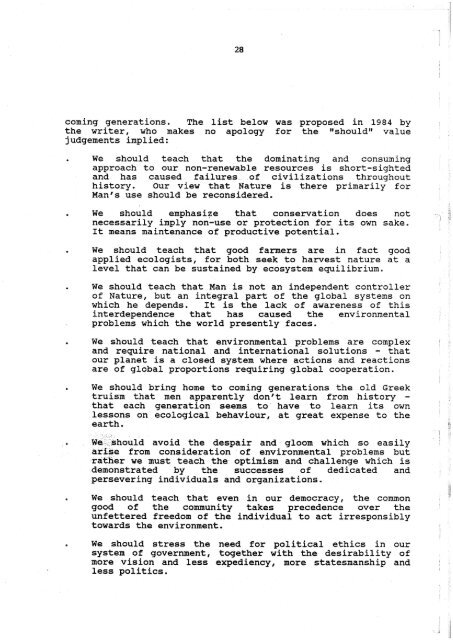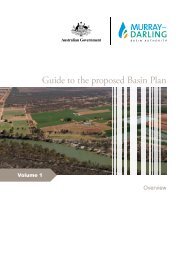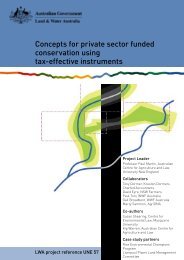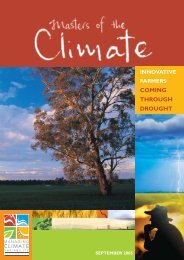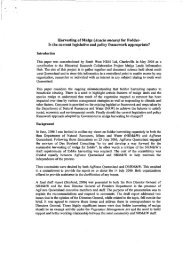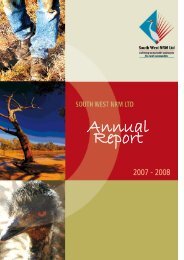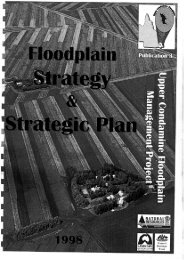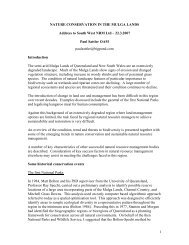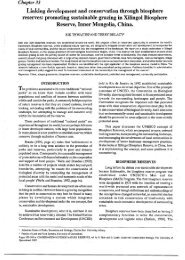soil-conservation-people-religion-and-land.pdf - South West NRM
soil-conservation-people-religion-and-land.pdf - South West NRM
soil-conservation-people-religion-and-land.pdf - South West NRM
Create successful ePaper yourself
Turn your PDF publications into a flip-book with our unique Google optimized e-Paper software.
coming generations. The list below was proposed in 1984 by<br />
the writer, who makes no apology for the "should" value<br />
judgements implied:<br />
. We should teach that the dominating <strong>and</strong> consuming<br />
approach to our non-renewable resources is short-sighted<br />
<strong>and</strong> has caused failures. of civilizations throughout<br />
history. Our view that Nature is there primarily for<br />
Man's use should be reconsidered,<br />
. We should emphasize that <strong>conservation</strong> does not - /<br />
necessarily imply non-use or protection for its own sake.<br />
It means maintenance of productive potential.<br />
We should teach that good farmers are in fact good<br />
applied ecologists, for both seek to harvest nature at a<br />
level that can be sustained by ecosystem equilibrium.<br />
We should teach that Man is not an independent controller<br />
of Nature, but an integral part of the global systems on<br />
which he depends. It is the lack of awareness of this<br />
interdependence that has caused the environmental<br />
problems which the world presently faces.<br />
We should teach that environmental problems are complex<br />
<strong>and</strong> require national <strong>and</strong> international solutions - that<br />
our planet is a closed system where actions <strong>and</strong> reactions<br />
are of global proportions requiring global cooperation.<br />
We should bring home to coming generations the old Greek<br />
truism that men apparently don't learn from history -<br />
that each generation seems to' have to learn its own<br />
lessons on ecological behaviour, at great expense to the<br />
earth.<br />
We should avoid the despair <strong>and</strong> gloom which so easily<br />
arise from consideration of environmental problems but<br />
rather we must teach the optimism <strong>and</strong> challenge which is<br />
demonstrated by the successes of dedicated <strong>and</strong><br />
persevering individuals <strong>and</strong> organizations.<br />
We should teach that even in our democracy, the common<br />
good of the community takes precedence over the<br />
unfettered freedom of the individual to act irresponsibly<br />
towards the environment.<br />
We should stress the need for political ethics in our<br />
system of government, together with the desirability of<br />
more vision <strong>and</strong> less expediency, more statesmanship <strong>and</strong><br />
less politics.


